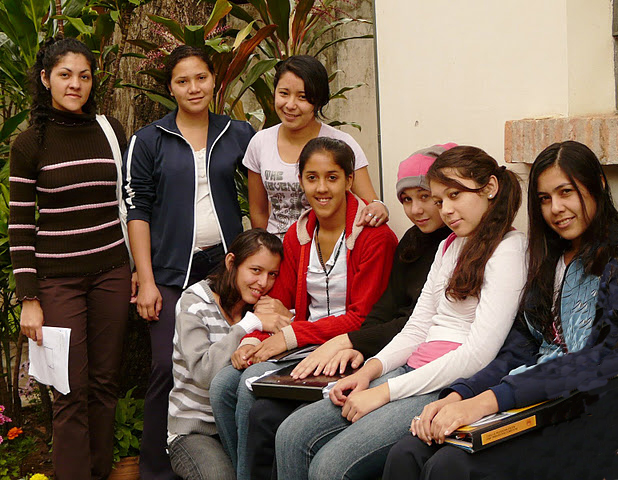September 27, 2018
Rural women access to credit and savings in Paraguay
Women are the 47% of the population in rural areas of Paraguay. These women, farmers, fisherwomen, cattle ranchers, artisans, merchants, who for centuries have been protagonists of family agriculture, however have been historically invisible. The work they do at home is often not valued and is confused with the work carried out on the farm, so the contribution they make to agriculture and to the family's food security is not recognized. All this has distanced them from the benefits of development, limiting their services to technical assistance, technologies and markets, as well as something as fundamental as banking services, savings and access to credit.
Access and use of quality financial products and services are essential for inclusive economic growth and poverty reduction. For women, financial inclusion is doubly important due to the disproportionate levels of poverty they suffer as a result of the unequal division of labor and the lack of control over economic resources. This makes many women remain dependent on their husbands, and about one in three married women in developing countries has no control over household spending on major purchases, according to United Nations.
Although significant progress has been made in recent years in expanding access to formal financial services in developing countries, as is the case in Paraguay, there is still a significant gap in access between men and women. This is illustrated by a basic measure of financial inclusion: the ownership of bank accounts. Worldwide, only 58 percent of women have an account in a formal financial institution, compared to 65 percent of men.

To face the challenge of female financial inclusion, the Joint Program of the United Nations Sustainable Development Goals Fund (SDG Fund) in Paraguay has worked in the last three years with the Government supporting groups of women entrepreneurs. In recent years, they have promoted half a hundred savings groups made up solely of women, indigenous people and peasants. More than 800 women have had, for the first time, access to a savings account.
"We are extremely happy with the experience", says Regina Sosa, President of the Administrative Committee of the Toro Kangué Community Savings Group, rural department of Caaguazú, who participates in the programme. This savings group is composed of twelve women and one man, who actively work in the community organization. "Most beneficiaries thought it would be difficult to save, but as they developed the methodology of the program, they discovered that it was possible."
The savings and credit methodology is one of the lines of work of the PCSAN (acronym for which the SDG Fund program in Paraguay is known) in the line of poverty reduction. The focus of this program, designed within the framework of the Sustainable Development Goals, addressed child and maternal malnutrition in vulnerable rural areas of the country with a focus on rights, gender and respect for cultural diversity.
We thought it would be difficult to save, but as the program program developed, we discovered that it was possible
Regina Sosa
President of the Administrative Committee of the Toro Kangué Community Savings Group
Rural women are key agents to achieve the economic, environmental and social changes necessary for sustainable development but their limited access to credit, health care and education is among the many challenges they face. Empowering this group is not only essential for the well-being of rural people, families and communities, but also for overall economic productivity, given the large presence of women in the global agricultural workforce.
Improving the social and economic status of women within their homes and communities has a direct impact on food security and nutrition, particularly in child nutrition. For example, studies by the Organization for Economic Co-operation and Development show that women, if given the opportunity to control additional household income, tend to spend more on food, health, clothing and education for children than the children. mens. Therefore, gender equality is essential to achieve food security and nutrition, both now and for future generations.






